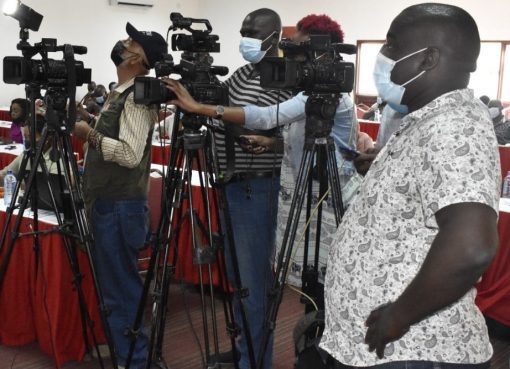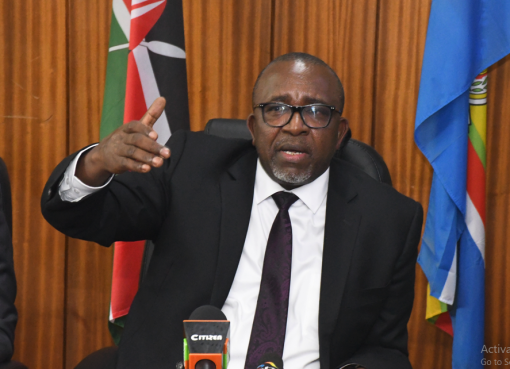The government has ordered the immediate closure of all gold mining sites within West Pokot County, citing a spate of deadly incidents and severe environmental degradation.
West Pokot County Commissioner (CC) Abdullahi Khalif stated that the decision arises from the rising cases of fatalities and wanton environmental degradation linked to unregulated mining.
He was addressing the press in Kapenguria flanked by a multi-agency team drawn from the region before heading to oversee the adherence to directive.
“Mining activities, especially those being carried out illegally, have so far claimed 7 lives in the last three months with another recent death being over the weekend where a woman lost her life and two excavators buried in quarry debris during the mining operation,” said Khalif.
He stressed that the ongoing unregulated mining activities have not only endangered human lives but also polluted local water bodies, affecting both people and livestock.
According to Khalif, the authorities are working closely with NEMA and have reached a consensus on shutting down the over 500 mining sites in the region.
“Article 42 of the Constitution stipulates that every person has the right to a safe and clean environment but as of now the waters of River Turkwel and other water bodies around mining sites are unsuitable for domestic use prompting dangers,” Khalif said.
To help regulate the mining sector and improve access to government services, the West Pokot County Government has opened a local mining office.
Previously, residents had to travel to Eldoret to access such services. The new office will support artisanal miners in obtaining the necessary permits and technical guidance while curbing illegal activities.
Khalif said no gold mining license had been issued from the Office of the Mining and the Blue Economy Cabinet Secretary.
“Any mining taking place without a licence is illegal. Many have been operating outside the law and that must stop immediately,” he declared.
He also noted that the mushrooming of illegal mines has disrupted education in schools located near mining sites, with a noticeable increase in school dropouts and early marriages.
“The noise, dust, and insecurity have created an unsuitable learning environment. Some children have dropped out of school owing to the proceeds generated from the mining activities. This is not acceptable,” he revealed.
While large-scale mechanized operations will no longer be tolerated, Khalif clarified that the government would allow regulated artisanal mining to continue and the miners have been given three-months grace period to comply with the Mining Act.
According to the Assistant County Mining Officer Isaac Songol, artisanal miners are individuals who mine using hand tools such as forks, spades and metal basins otherwise known as karayas, thus some names such as Kambi Karaya where gold is mined.
“These are local individuals operating on a small scale, and the government will support them to ensure they mine safely and legally,” Songol said.
Khalif reaffirmed the government’s commitment to ending the dangers posed by illegal mining and a report from all the over 500 mining sites spread in Pokot Central, Pokot North, Kacheliba and Kipkomo indicate that the areas have been exposed to both air and sound pollution.
He advised those willing to venture into gold mining activities to liaise with the recently opened County Mining Office in Kapenguria with regard to licensing and adherence to the Mining Act.
“We are not against mining, but we are against lawlessness. We will not compromise when lives and the environment are at stake,” warned the CC.
The county now braces for stricter enforcement of mining regulations as the authorities move swiftly to implement the directive in the region that enjoys the presence of several mineral deposits such as nickel, limestone, copper among others.
The CC highlighted that everyone stands to benefit once bother foreign and local investors abide by the Mining Act where 70 percent of the total revenue collected goes to the national government as 20 percent and 10 percent gets to the county government and to the local community respectively.
By Richard Muhambe and Victor Musamali





